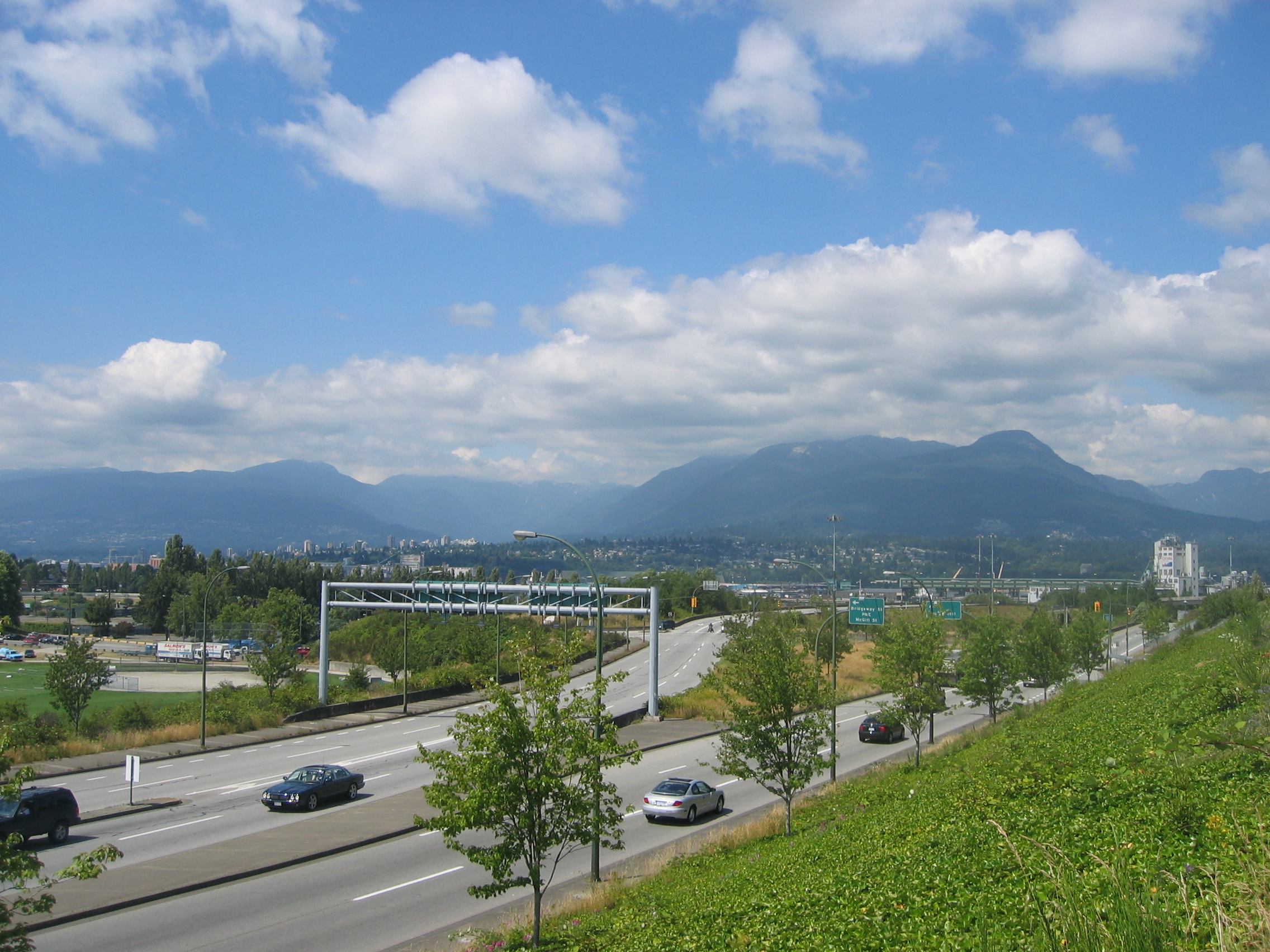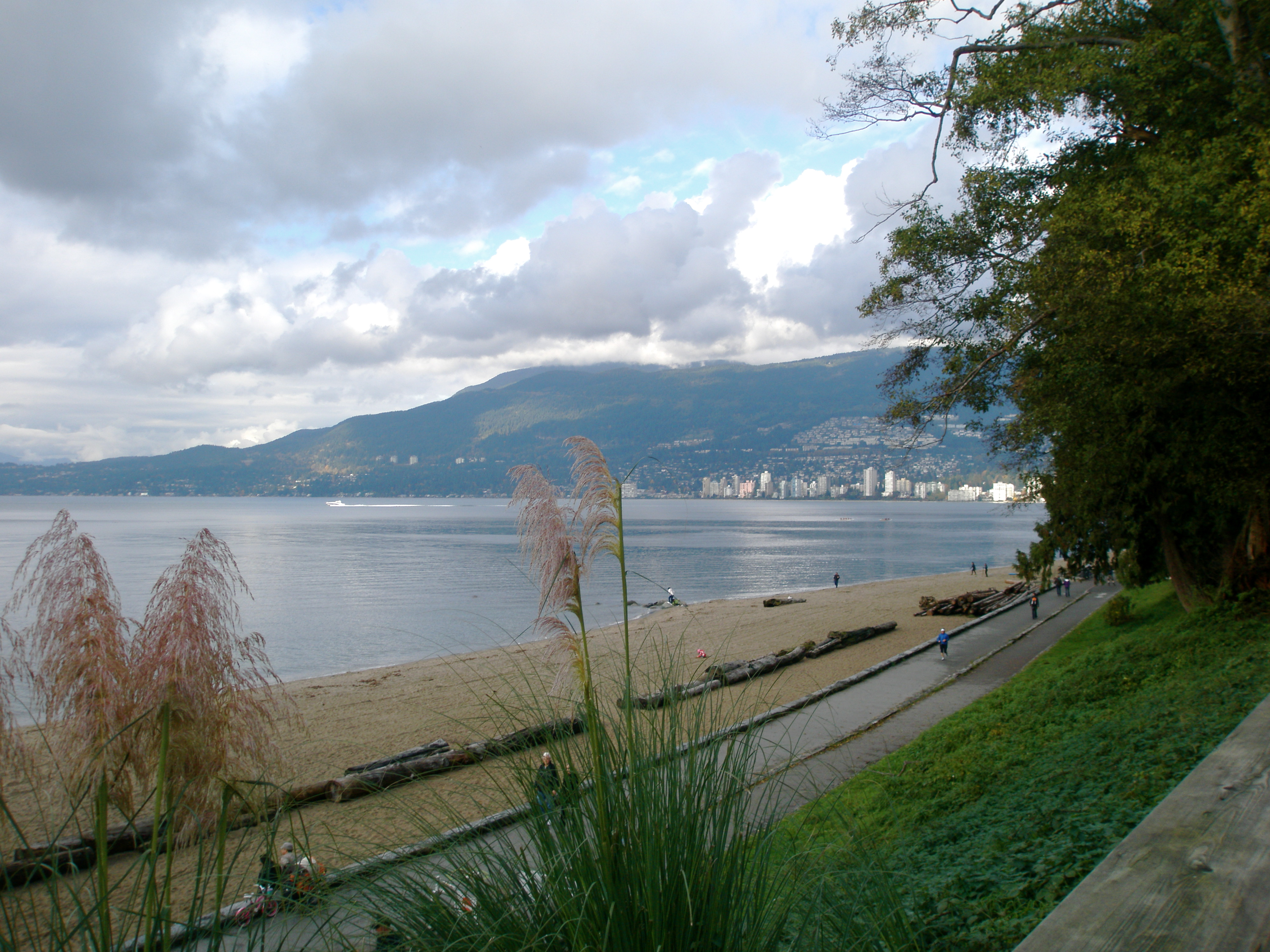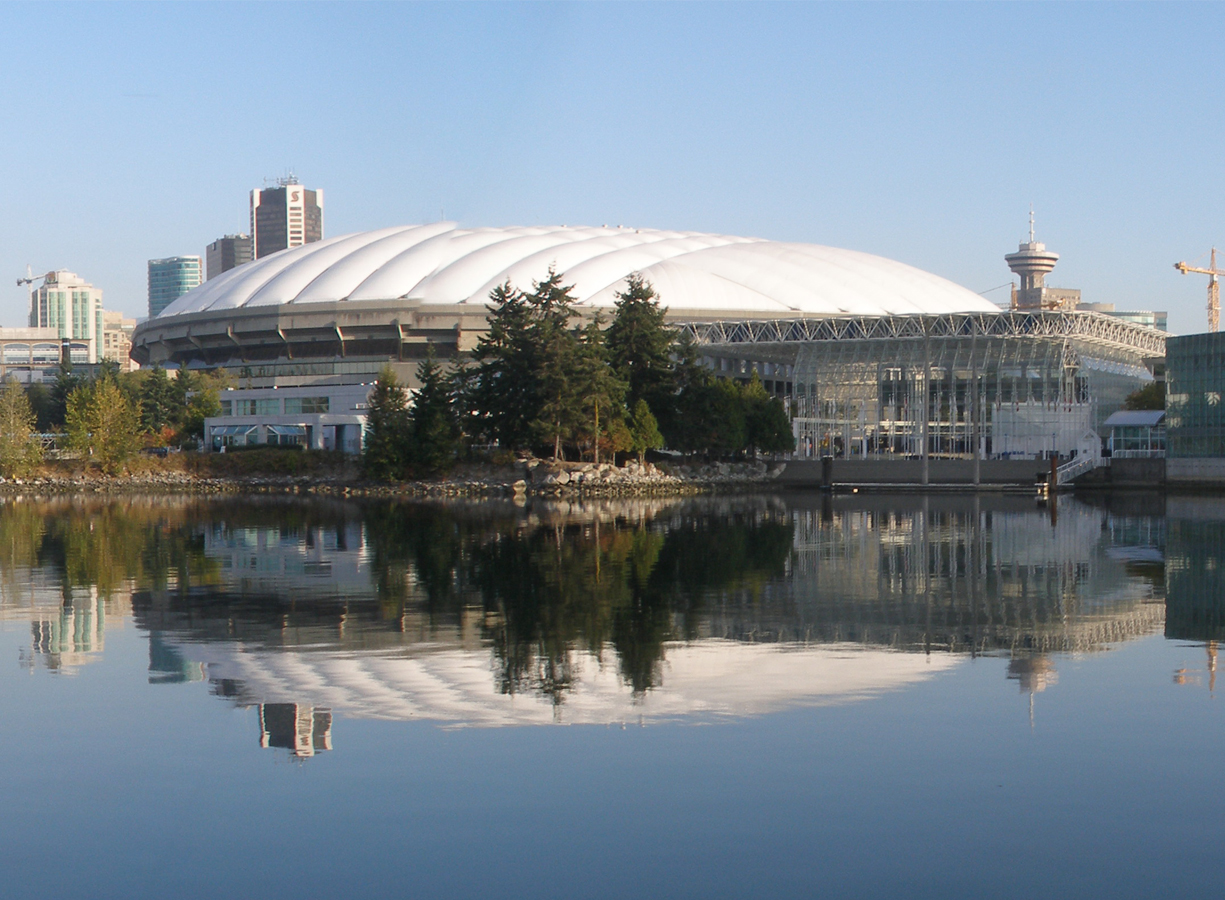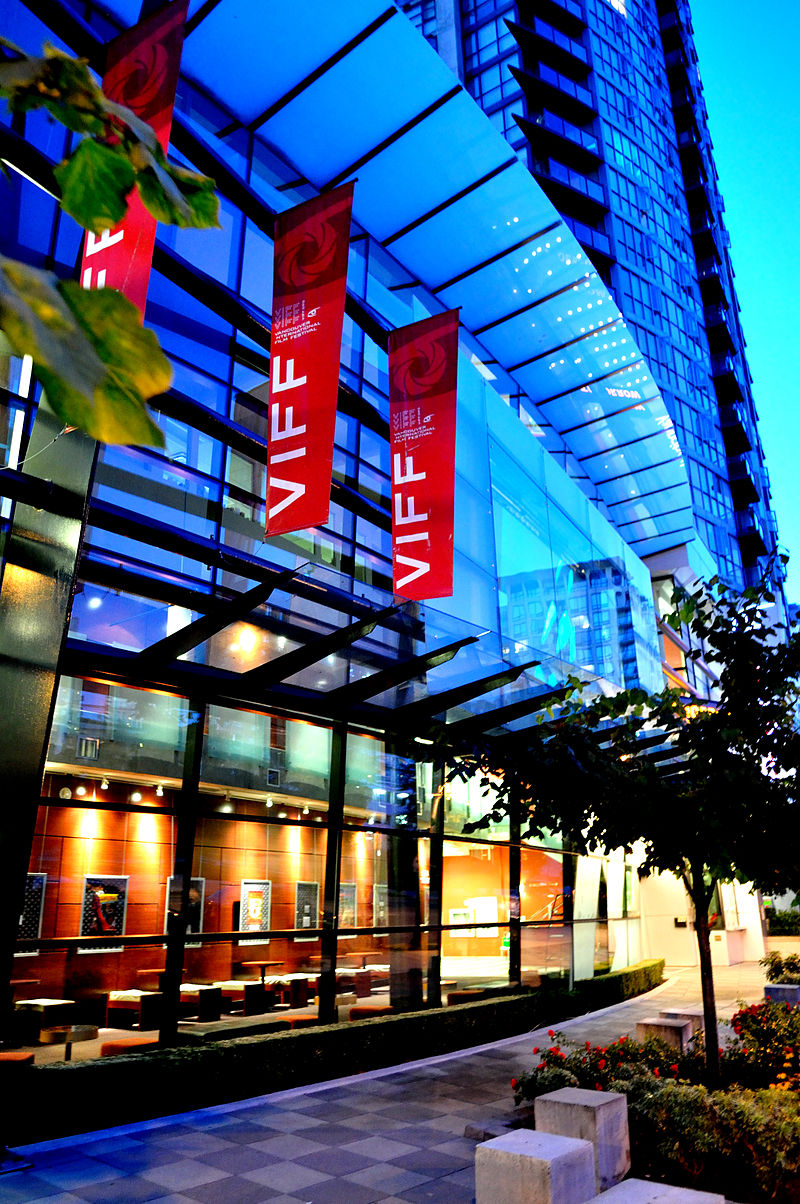Vancouver is a coastal seaport city in western Canada, located in the Lower Mainland region of British Columbia. As the most populous city in the province, the 2016 census recorded 631,486 people in the city, up from 603,502 in 2011. The Greater Vancouver area had a population of 2,463,431 in 2016, making it the third-largest metropolitan area in Canada. Vancouver has the highest population density in Canada, with over 5,400 people per square kilometer, which makes it the fifth-most densely populated city with over 250,000 residents in North America, behind New York City, Guadalajara, San Francisco, and Mexico City according to the 2011 census. Vancouver is one of the most ethnically and linguistically diverse cities in Canada according to that census; 52% of its residents have a first language other than English. 48.9% have neither English nor French as their first language. Roughly 30% of the city’s inhabitants are of Chinese heritage.
Vancouver is consistently named as one of the top five worldwide cities for livability and quality of life, and the Economist Intelligence Unit acknowledged it as the first city ranked among the top-ten of the world’s most well-living cities for five consecutive years. Vancouver has hosted many international conferences and events, including the 1954 British Empire and Commonwealth Games, UN Habitat I, Expo 86, the World Police and Fire Games in 1989 and 2009; and the 2010 Winter Olympics and Paralympics which were held in Vancouver and Whistler, a resort community 125 km (78 mi) north of the city. In 2014, following thirty years in California, the TED conference made Vancouver its indefinite home. Several matches of the 2015 FIFA Women’s World Cup were played in Vancouver, including the final at BC Place.
The original settlement, named Gastown, grew up on clearcuts on the west edge of the Hastings Mill logging sawmill’s property, where a makeshift tavern had been set up on a plank between two stumps and the proprietor, Gassy Jack, persuaded the curious millworkers to build him a tavern, on July 1, 1867. From that first enterprise, other stores and some hotels quickly appeared along the waterfront to the west. Gastown became formally laid out as a registered town site dubbed Granville, B.I. (“B.I” standing for “Burrard Inlet”). As part of the land and political deal whereby the area of the town site was made the railhead of the Canadian Pacific Railway (CPR), it was renamed “Vancouver” and incorporated shortly thereafter as a city, in 1886. By 1887, the Canadian Pacific transcontinental railway was extended westward to the city to take advantage of its large natural seaport to the Pacific Ocean, which soon became a vital link in a trade route between the Orient / East Asia, Eastern Canada, and Europe.
As of 2016, Port Metro Vancouver is the fourth-largest port by tonnage in the Americas (recently displacing New York City), 29th in the world, the busiest and largest in Canada, and the most diversified port in North America. While forestry remains its largest industry, Vancouver is well known as an urban centre surrounded by nature, making tourism its second-largest industry.
Major film production studios in Vancouver and nearby Burnaby have turned Greater Vancouver and nearby areas into one of the largest film production centres in North America, earning it the nickname “Hollywood North”.
CLIMATE

Vancouver is one of Canada’s warmest cities in the winter. Vancouver’s climate is temperate by Canadian standards and is classified as oceanic or marine west coast, which under the Köppen climate classification system is classified as Cfb that borders on a warm summer Mediterranean Climate Csb. While during summer months the inland temperatures are significantly higher, Vancouver has the coolest summer average high of all major Canadian metropolitan areas. The summer months are typically dry, with an average of only one in five days during July and August receiving precipitation. In contrast, there is some precipitation during nearly half the days from November through March.
Vancouver is also one of the wettest Canadian cities. However, precipitation varies throughout the metropolitan area. Annual precipitation as measured at Vancouver International Airport in Richmond averages 1,189 mm (46.8 in), compared with 1,588 mm (62.5 in) in the downtown area and 2,044 mm (80.5 in) in North Vancouver. The daily maximum averages 22 °C (72 °F) in July and August, with highs rarely reaching 30 °C (86 °F).
The highest temperature ever recorded at the airport was 34.4 °C (93.9 °F) set on July 30, 2009, and the highest temperature ever recorded within the city of Vancouver was 35.0 °C (95.0 °F) occurring first on July 31, 1965, again on August 8, 1981, and finally on May 29, 1983. The coldest temperature ever recorded in the city was −17.8 °C (0 °F) on January 14, 1950, and again on December 29, 1968.
On average, snow falls on nine days per year, with three days receiving 5 cm (2.0 in) or more. The average yearly snowfall is 38.1 cm (15.0 in) but typically does not remain on the ground for long.
Winters in Greater Vancouver are the fourth-mildest of Canadian cities after nearby Victoria, Nanaimo, and Duncan, all on Vancouver Island. Vancouver’s growing season averages 237 days, from March 18 until November 10. Vancouver’s 1981–2010 USDA Plant Hardiness Zone ranges from 8A to 9A depending on elevation and proximity to water.
SPORTS AND RECREATION

The mild climate of the city and proximity to ocean, mountains, rivers, and lakes make the area a popular destination for outdoor recreation. Vancouver has over 1,298 hectares (3,210 acres) of parks, of which, Stanley Park, at 404 hectares (1,000 acres), is the largest. The city has several large beaches, many adjacent to one another, extending from the shoreline of Stanley Park around False Creek to the south side of English Bay, from Kitsilano to the University Endowment Lands, (which also has beaches that are not part of the city proper). The 18 kilometers (11 mi) of beaches include Second and Third Beaches in Stanley Park, English Bay (First Beach), Sunset, Kitsilano Beach, Jericho, Locarno, Spanish Banks, Spanish Banks Extension, Spanish Banks West, and Wreck Beach. There is also a freshwater beach at Trout Lake in John Hendry Park. The coastline provides for many types of water sport, and the city is a popular destination for boating enthusiasts.
Within a 20- to 30-minute drive from downtown Vancouver are the North Shore Mountains, with three ski areas: Cypress Mountain, Grouse Mountain, and Mount Seymour. Mountain bikers have created world-renowned trails across the North Shore. The Capilano River, Lynn Creek and Seymour River, also on the North Shore, provide opportunities to whitewater enthusiasts during periods of rain and spring melt, though the canyons of those rivers are more utilized for hiking and swimming than whitewater.
Running races include the Vancouver Sun Run (a 10-kilometre (6.2 mi) race) every April; the Vancouver Marathon, held every May; and the Scotiabank Vancouver Half-Marathon held every June. The Grouse Grind is a 2.9-kilometre (1.8 mi) climb up Grouse Mountain open throughout the summer and fall months, including the annual Grouse Grind Mountain Run. Hiking trails include the Baden-Powell Trail, an arduous 42-kilometre-long (26 mi) hike from West Vancouver’s Horseshoe Bay to Deep Cove in the District of North Vancouver.

Vancouver is also home to notable cycling races. Most summers since 1973, the Global Relay Gastown Grand Prix has been held on the cobblestone streets of Gastown. This race and the UBC Grand Prix are part of BC Superweek, an annual series of professional cycling races in Metro Vancouver.
The British Columbia Derby is a nine furlong horse race held at the Hastings Racecourse in the third week of September.
In 2009, Metro Vancouver hosted the World Police and Fire Games. Swangard Stadium, in the neighbouring city of Burnaby, hosted games for the 2007 FIFA U-20 World Cup.
Vancouver, along with Whistler and Richmond, was the host city for the 2010 Winter Olympics and the 2010 Winter Paralympics. On June 12, 2010, it played host to Ultimate Fighting Championship 115 (UFC 115) which was the fourth UFC event to be held in Canada (and the first outside Montreal). There have been a number of successful UFC events since then
In 2011, Vancouver hosted the Grey Cup, the Canadian Football League (CFL) championship game which is awarded every year to a different city that has a CFL team. The BC Titans of the International Basketball League played their inaugural season in 2009, with home games at the Langley Event Centre. Vancouver is a centre for the fast-growing sport of ultimate. During the summer of 2008, Vancouver hosted the World Ultimate Championships.
In 2015, Vancouver was one of six venues for the 2015 FIFA Women’s World Cup and hosted the Final game between the United States and Japan.
Vancouver can be termed as of the most happening places in terms of events, games, and sports.
Arts and culture
Opened in 2005, Vancouver International Film Centre houses production rooms and offices for the Vancouver International Film Festival.
Theatre, dance, film and television

Theater
Prominent theatre companies in Vancouver include the Arts Club Theatre Company on Granville Island, and Bard on the Beach. Smaller companies include Touchstone Theatre, and Studio 58. The Cultch, The Firehall Arts Centre, United Players, Pacific and Metro Theatres, all run continuous theatre seasons. Theatre Under the Stars produces shows in the summer at Malkin Bowl in Stanley Park. Annual festivals that are held in Vancouver include the PuSh International Performing Arts Festival in January and the Vancouver Fringe Festival in September.
The Vancouver Playhouse Theatre Company operated for fifty years, ending in March 2012.
Dance
The Scotiabank Dance Centre, a converted bank building on the corner of Davie and Granville, functions as a gathering place and performance venue for Vancouver-based dancers and choreographers. Dances for a Small Stage is a semi-annual dance festival.
Film
The Vancouver International Film Festival, which runs for two weeks each September, shows over 350 films and is one of the larger film festivals in North America. The Vancouver International Film Centre venue, the Vancity Theatre, runs independent non-commercial films throughout the rest of the year, as do the Pacific Cinémathèque, and the Rio theatres.
Films set in Vancouver
Vancouver has become a major film location, known as Hollywood North, as it has stood in for several U.S. cities. However, it has started to appear as itself in several feature films. Among films set in the city and its surroundings are the 1994 US thriller Intersection, starring Richard Gere and Sharon Stone; the 2007 Canadian ghost thriller They Wait, starring Terry Chen and Jaime King; and the acclaimed Canadian ‘mockumentary’ Hard Core Logo, and was named the second-best Canadian film of the last 15 years, in a 2001 poll of 200 industry voters, performed by Playback. Genie Award-winning filmmaker Mina Shum has filmed and set several of her internationally released features in Vancouver, including the Sundance-screened Long Life, Happiness & Prosperity (2002).
Television shows produced in Vancouver
Many past and current TV shows have been filmed and set in Vancouver. The first Canadian prime time national series to be produced out of Vancouver was Cold Squad and its storyline was also physically set in the city. Other series set in or around the city of Vancouver include Continuum, Da Vinci’s Inquest, Danger Bay, Edgemont, Godiva’s, Intelligence, Motive, Northwood, Primeval: New World, Robson Arms, The Romeo Section, Shattered, The Switch, and These Arms of Mine.
Television shows produced (but not set) in Vancouver include 21 Jump Street, The 100, The 4400, Airwolf, Almost Human, Arrow, Backstrom, Caprica, Cedar Cove, Chesapeake Shores, The Commish, Dark Angel, Dirk Gently’s Holistic Detective Agency, The Flash, The Good Doctor, Haters Back Off, Hellcats, Intelligence, iZombie, The Killing, The L Word, Life Unexpected, The Man in the High Castle, Once Upon a Time, Psych, Reaper, Riverdale, Rogue, Smallville, Stargate SG-1, Supergirl, Supernatural, The Tomorrow People, The Magicians, Tru Calling, Van Helsing, Witches of East End, and The X-Files.
